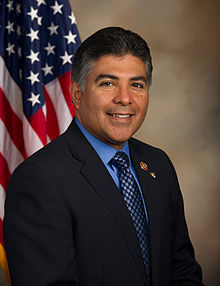
Anton Prado PHOTOGRAPHY / Thinkstock
Under a bill pending in Congress, states would be forbidden to lock up juveniles who violate a court order by committing a status offense.
States would be forbidden to lock up juveniles who violate a court order by committing a status offense like truancy, running away from home or failing to abide by a curfew, under a bill pending in Congress.
The measure, introduced by Rep. Tony Cardenas (D-Calif.), would restore a provision of the 1974 Juvenile Justice and Delinquency Prevention Act that prohibited states from allowing judges to incarcerate juveniles when they commit a status offense in violation of a court order.
The number of status offenders detained had dropped off sharply after the JJDPA stipulated states could forfeit some juvenile justice money if they allowed youths to be detained for committing a status offense in violation of a court order.
But in reauthorizing the JJDPA in 1980, Congress allowed incarceration of juveniles under what is known as the “valid court order” (VCO) exception in which judges can detain a youth if a status offense violates a court order.
“I think if most of America understood what a status offense was and if they realized that some children are being incarcerated over status offenses, they would be first of all, surprised and secondly, they would not agree that that is a proper way of handling … a status offense,” Cardenas told JJIE.
Many states have abandoned the VCO exception, but the federal Office of Juvenile Justice and Delinquency Prevention says 27 states still allow judges to incarcerate juveniles when status offenses violate court orders.
The Washington-based Coalition for Juvenile Justice said youths had been detained about 8,000 times under the VCO exception in 2010.

CC / Wikipedia
U.S. Rep. Tony Cárdenas
Cardenas’ bill, co-sponsored by five lawmakers, has received support from the CJJ and numerous other national youth, disability and justice organizations, including the Campaign for Youth Justice, the Children’s Defense Fund, the Juvenile Law Center, The W. Haywood Burns Institute, the NAACP, the American Civil Liberties Union and the National PTA.
The national organizations, joined by state and local groups, signed a letter to members of Congress urging them to support the status offenders bill (HR-4123).
“Too many young kids are still finding their way into the juvenile justice system unnecessarily,” the letter states.
“We know that detention of status offenders is more costly and less effective than home and community-based responses. It interrupts education, increases the chances the youth will go ‘deeper’ into the [juvenile justice] system, and leads to higher recidivism rates.”
The letter notes girls are much more likely to be arrested for status offenses and to receive more severe punishment.
“Many girls who act out as a result of abuse or trauma are simply re-traumatized by violent and abusive experiences in the juvenile justice system,” the letter said.
Under Cardenas’ bill, states would be required to stop using the VCO exception within one year of passage, or risk losing some OJJDP funds. But the bill would allow an additional year to comply if states show it would be a hardship to meet the initial deadline.
Lisa Pilnik, deputy executive director of the nonprofit CJJ, a coalition of juvenile justice advocacy groups, said detaining status offenders can expose them to youths who have committed much more serious crimes.
“[Status offenders] can learn bad behaviors from those youths,” Pilnik said.
And a 118-page report released by CJJ in December said detained status offenders are often held in overcrowded, understaffed facilities where they can be exposed to violence. Indeed, almost 20 percent of status offenders and other youths held for non-delinquent offenses are housed with youth who have committed murder or manslaughter and 25 percent are placed in units with felony sex offenders, the report said.
Pilnik said status offenders — and taxpayers — would be better served by effective community-based programs, which cost less and work better than incarceration.
“There’s a lot of support [for Cardenas’ bill] because to us and to all these other groups that have signed on this is kind of an obvious thing,” she said. “Why would you lock up youth who’ve done nothing worse than run away from home or skip school or do all these behaviors that we know are at the very least typical teenage behavior and at the very worst symptoms of youth who need services and help and whose families may need some sort of an intervention?
“But these aren’t kids who’ve committed any sort of crime, much less a serious crime, so why are we locking them up?”
In providing community-based services to youths, Pilnik said, it’s important to assess what’s behind their behavior.
“So if the behavior is running away, is there conflict in the home that they’re running away from?” she said.
“If the behavior is skipping school, is there something going on at school? Is there an unmet special education need? Is the child being bullied at school? What’s happening at school that’s causing the child to not want to go and to not feel like school is a safe place for them or a place that they’re getting anything out of?”
Pilnik said the 1980 VCO exception came in part as a result of pressure from judges who wanted authority to detain juveniles whose status offenses violated court orders.
But she said that sentiment among judges has changed, noting the National Council of Juvenile and Family Court Judges has called for eliminating the VCO exception.
Cardenas, a first-term congressman, said lawmakers had eliminated the VCO exception as part of a politically expedient bid to get tough on juvenile crime.
The CJJ report concluded that detaining youths who have committed status offenses may increase the likelihood they will become more entangled with the juvenile justice system later and even with the criminal justice system when they become adults.
The report provided detailed recommendations on dealing with status offenses for those working with status offenders and their families.
The nonprofit CJJ developed the recommendations in partnership with the National Council of Juvenile and Family Court Judges and a team that included child welfare workers, juvenile defense attorneys, juvenile corrections and detention administrators, and community-based service providers.
